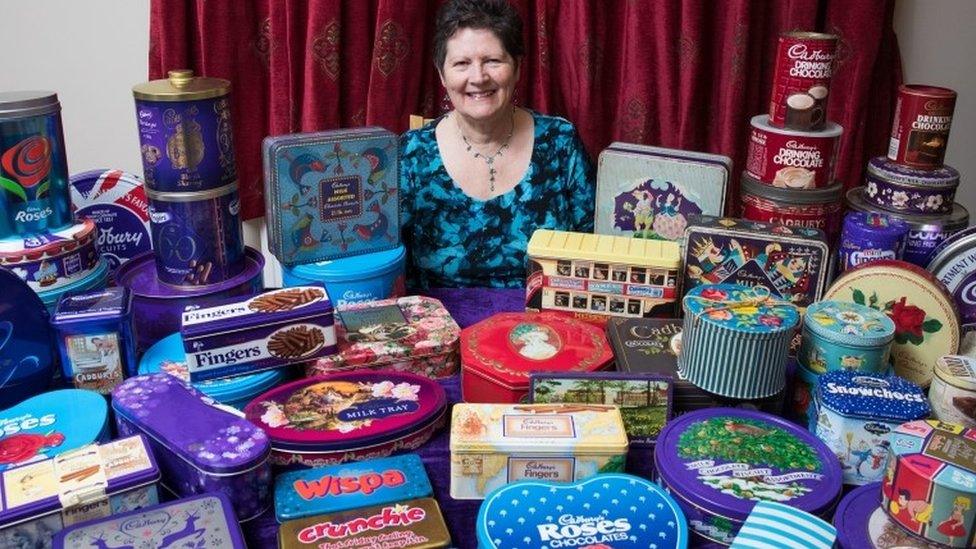Photographs of Cadbury's 'factory in a garden' on display
- Published
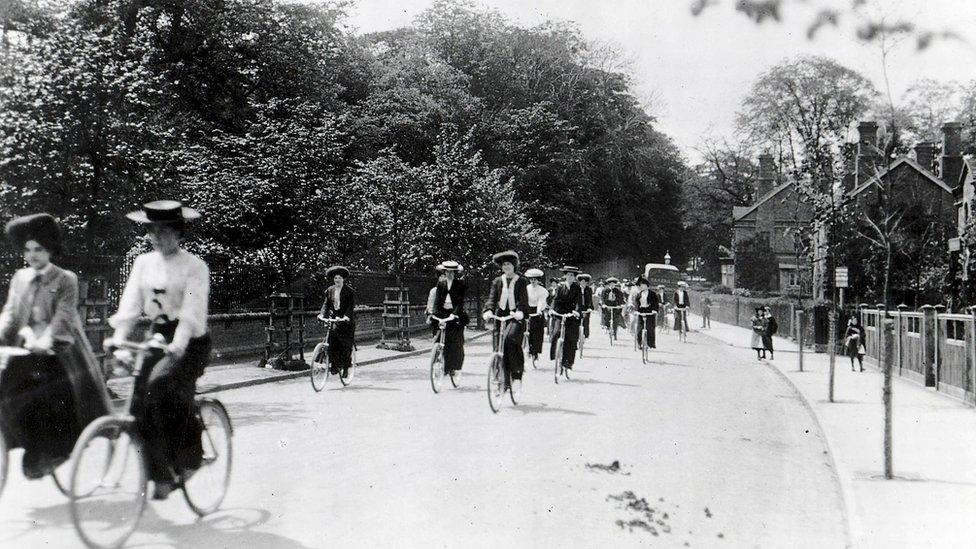
Cadbury employees cycling to work along Bournville Lane in 1905
In the late 1870s, the Cadbury brothers built a "factory in a garden" as they expanded their increasingly successful chocolate-making empire.
George and Richard Cadbury bought farmland five miles from Birmingham city centre to realise their vision.
The village of Bournville was created for their employees, complete with schools, a railway station, leisure facilities and parks - far removed from the slums associated with many factories of the age.
A new photography exhibition as part of Birmingham Heritage Week, external offers a glimpse into a bygone world.
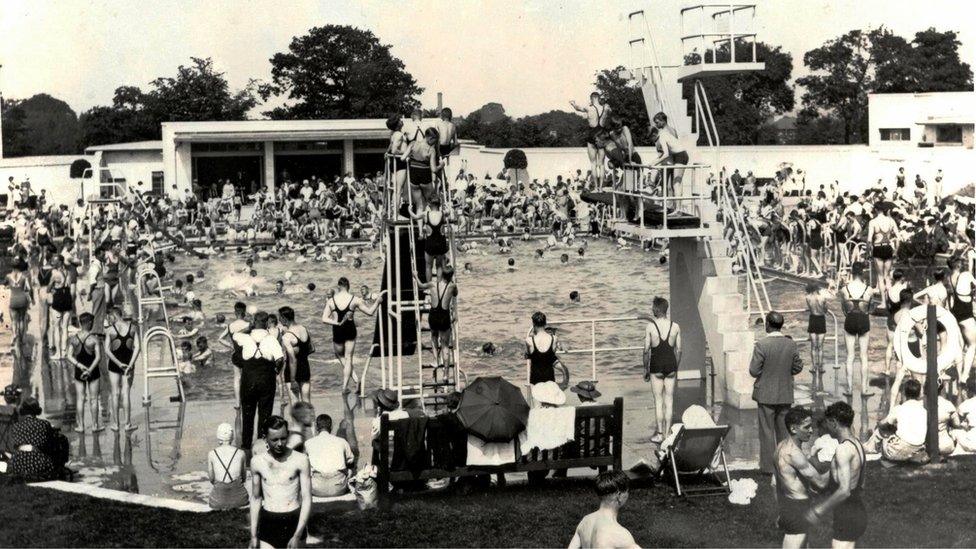
Large crowds at the hugely popular Rowheath Lido in 1937
Daniel Callicott, manager of Selly Manor Museum, external where the photos are displayed, said the pictures were testament to the efforts of George Cadbury, who founded the garden village more than 100 years ago.
He said the 400 "rare" photos had been brought together thanks to the work of members of the Bournville Society, who had researched and sourced them.
Many of the photos show workers enjoying leisure activities.
Over time, swimming pools, football, cricket and hockey pitches and tennis courts were built at Bournville.
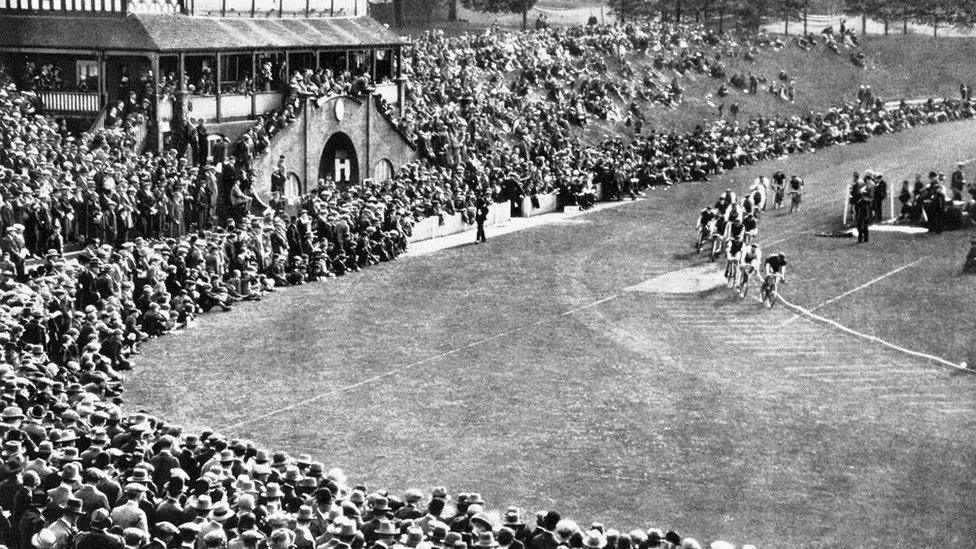
The Men's Recreation Ground, which ran alongside the Cadbury factory, drew large crowds for cycle racing in the 1940s
The photography exhibition also marks the centenary of the Bournville Works Housing Society. It was founded in 1919 to provide housing specifically for employees of Cadbury Brothers Ltd.
"This exhibition reflects on the life of those living and working in Bournville over the last 100 years - their work, activities, commercial developments and home life," said Bob Booth, chairman of the Bournville Society.
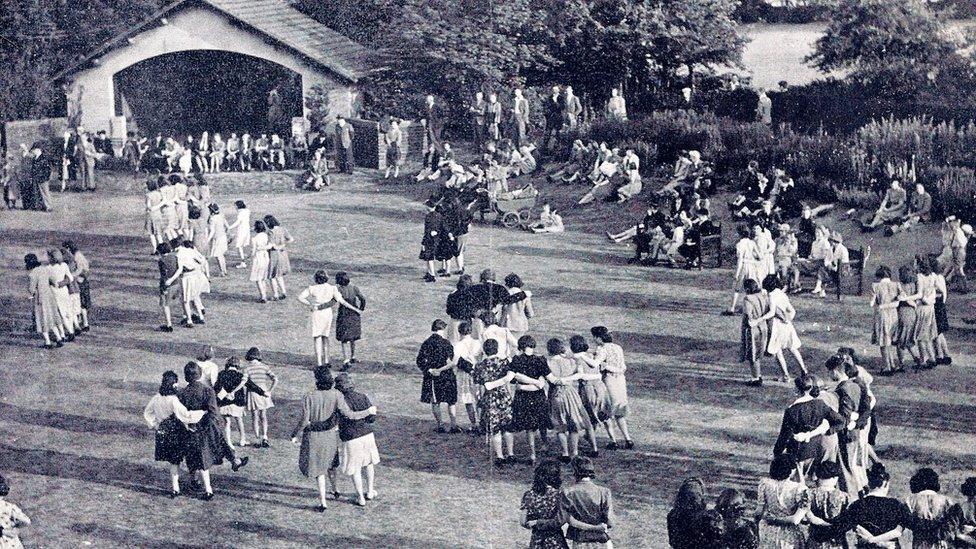
A summer dance in the grounds of Rowheath in 1942. The 75-acre site was bought in 1913 and developed for Cadbury employees' recreational use. A garden club covered nine acres, with an ornamental pool for model yachts
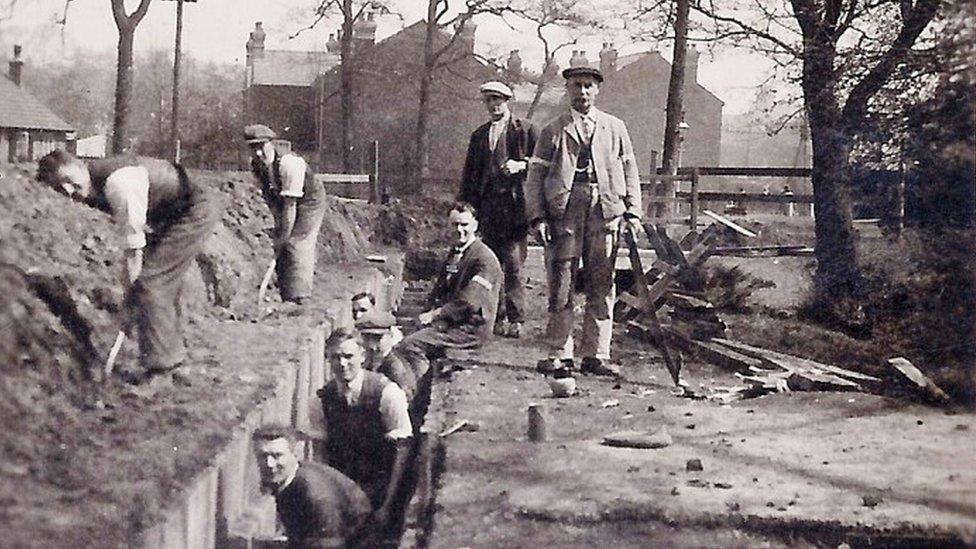
A group of men diverting Gallows Brook underground in 1919. The brook ran in front of the first 10 cottages in Hay Green Lane. Gardens were connected to the road by bridges, but were subject to regular flooding
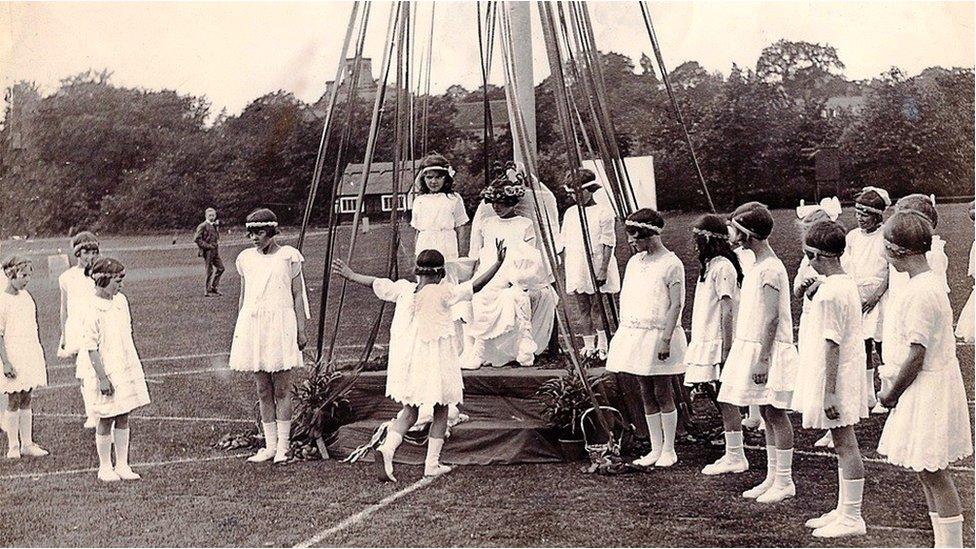
Dancing around the maypole is a central feature of the Bournville Festival. This photograph dates from the 1920s
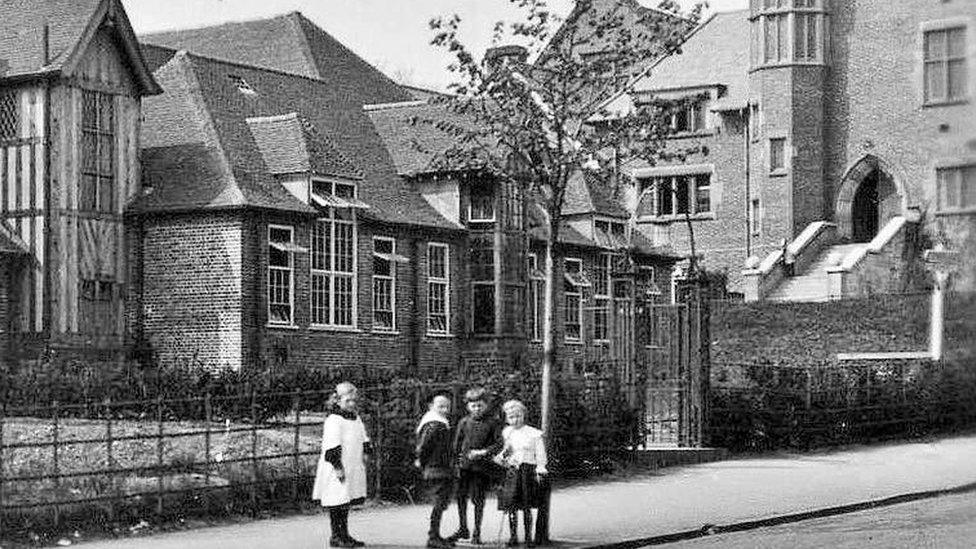
When it was built in 1910, Bournville Carillon had 22 bells. It was extended to 37 in George Cadbury's memory in 1923
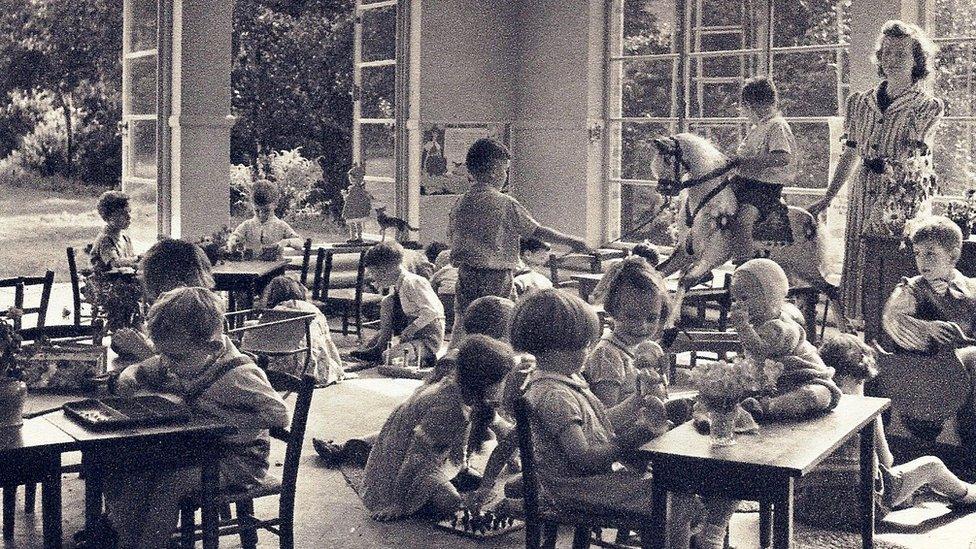
Pupils in Miss Brown's class at Bournville Infant School in 1955. The rocking horse was fondly remembered by many former pupils
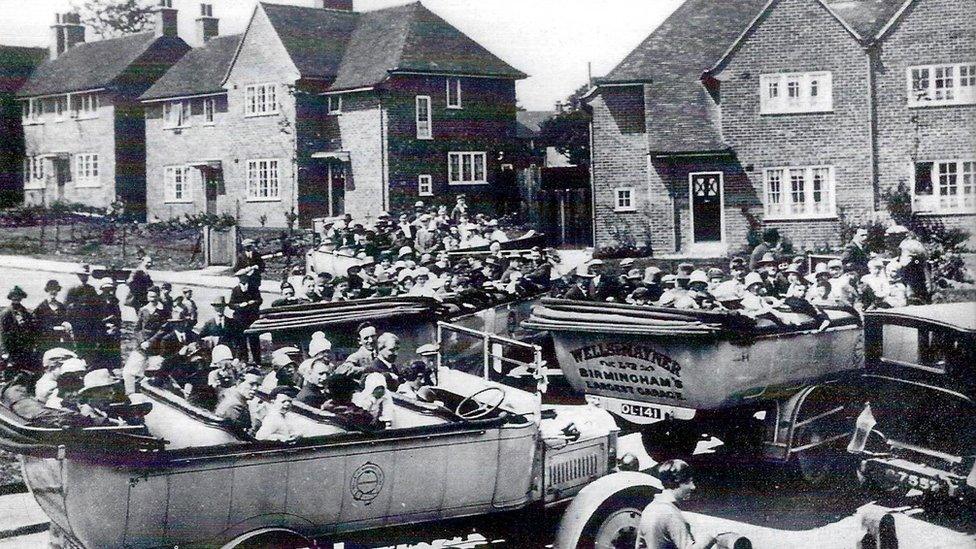
A Bournville Works Housing Society outing in 1926
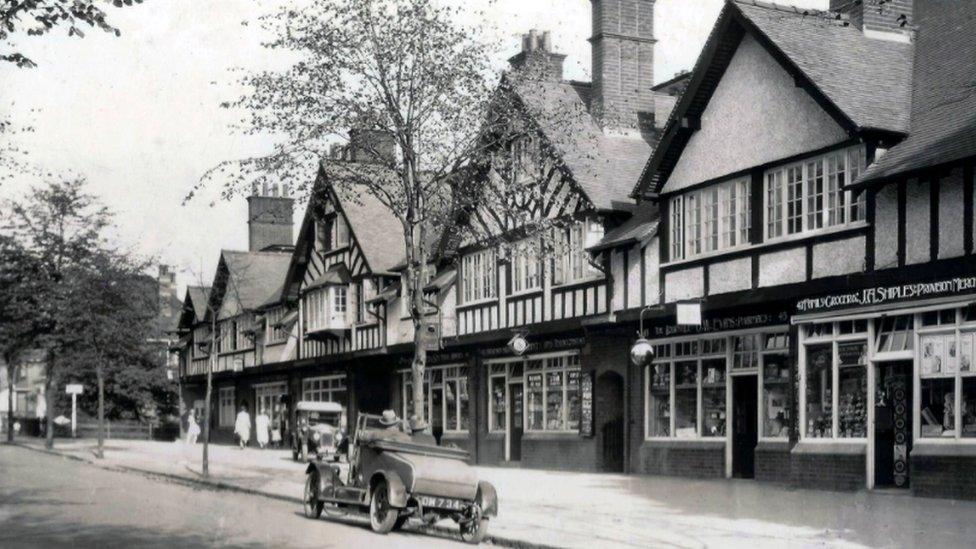
Shops at Bournville village green in 1925. They were designed by architect Bedford Tyler in 1908, and are still in use in 2020
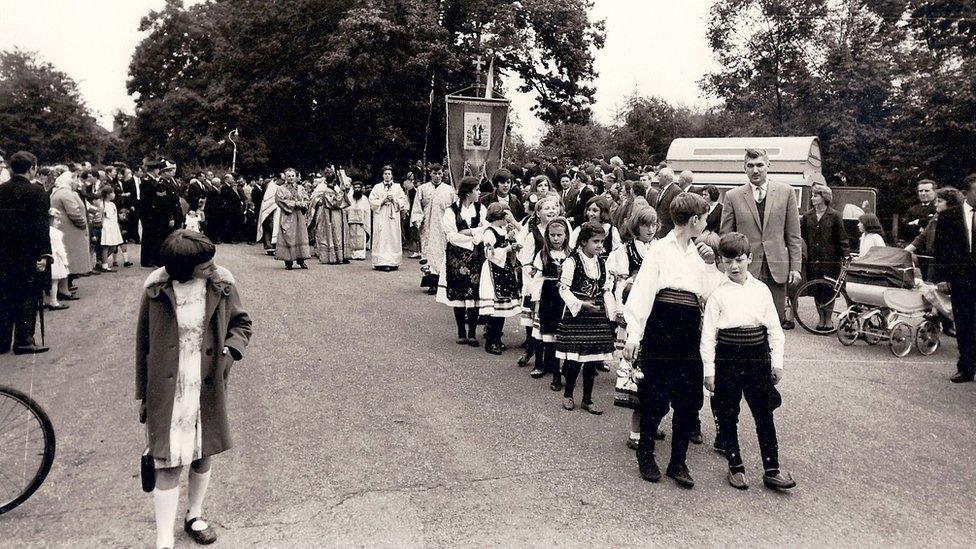
The opening ceremony for the Serbian Orthodox Church of the Holy Prince Lazar, in Bournville, in 1966
- Published2 October 2019
